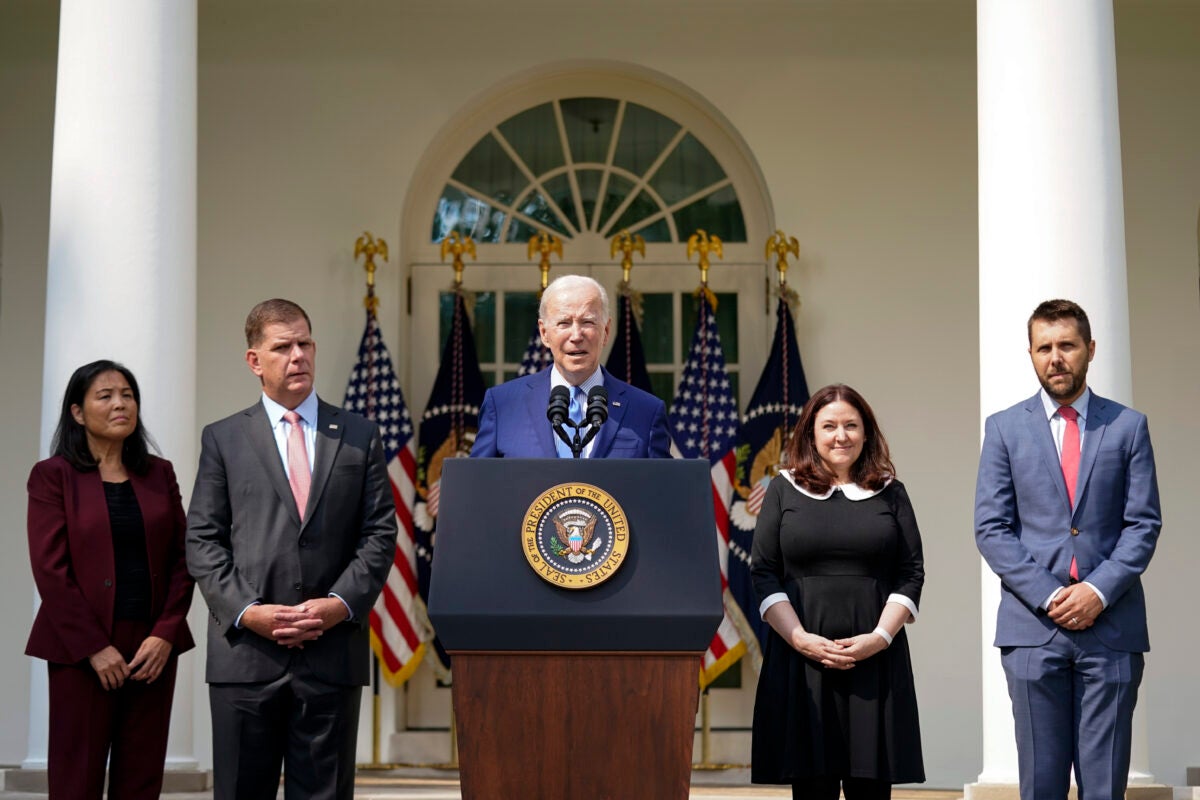There will be no rail strike in the U.S. on Friday as the key unions and negotiators for the railroads have reached a tentative agreement.
The Association for American Railroads announced early Thursday morning that tentative agreements had been reached with the Brotherhood of Locomotive Engineers and Trainmen (BLET) Division of the International Brotherhood of Teamsters, the International Association of Sheet Metal, Air, Rail and Transportation Workers – Transportation Division (SMART-TD), and the Brotherhood of Railroad Signalmen. It was those unions that had yet to come to terms with the National Carriers Conference Committee representing the railroads.
Other unions representing a smaller contingent of workers had reached agreement earlier. But the unions that agreed overnight were the largest group of employees still without a deal.
If a nationwide rail strike had occurred, it would have been the first in more than 30 years. It also threatened to cost the U.S. $2 billion in lost economic output every day.
The Friday deadline was the result of an earlier cooling off period declared by the Biden administration in July. That period was to end Friday just after midnight.
According to the AAR statement, the deal will give employees a 24% wage increase over five years between 2020 and 2024, and an $11,000 payout to each union member upon ratification, which is still required.
In a statement Thursday, President Joe Biden called the agreement “an important win.”
“These rail workers will get better pay, improved working conditions, and peace of mind around their health care costs: all hard-earned,” he said.

Union leaders, stakeholders respond to tentative agreement
The heads of two holdout unions — SMART-TD President Jeremy Ferguson and BLET President Dennis Pierce — say the new agreement addresses a key concern, which was being absent due to medical events.
Indeed, work-life balance and controversial attendance policies such as those of BNSF (NYSE: BRK.B) were among the sticking points in negotiations between the railroads and BLET and SMART-TD.
“For the first time, our unions were able to obtain negotiated contract language exempting time off for certain medical events from carrier attendance policies,” the two said in a joint statement. The tentative agreement also includes wage increases and bonuses, with no increases to insurance copays and deductibles, they said.
Union members will now vote on whether to approve the tentative agreement.
Breathing a sigh of relief were shippers and other supply chain stakeholders, such as the trucking industry.
“Our supply chain is entirely interdependent, making the potential for a nationwide rail stoppage a serious threat to our nation’s economic and national security,” said American Trucking Associations President and CEO Chris Spear in a release. “We applaud both sides for reaching a tentative agreement that averts this outcome and permits our supply chain to continue climbing out of this COVID-induced rut.”
Said National Retail Federation President and CEO Matthew Shay: “We are relieved and cautiously optimistic that this devastating nationwide rail strike has been averted. We appreciate the Biden administration’s intervention on behalf of the businesses and consumers who would have been impacted at a time when high inflation and economic uncertainty are challenging consumer budgets and putting business resiliency at risk.
“We hope railway workers will accept the new terms of the proposed contract and the railway system can continue to operate on behalf of the millions of hardworking Americans who rely on it for their jobs and the economic security of our country,” Shay continued.








Union member
All this did was postpone a strike. thisbwas forced on all the workers. the unions haven’t even showed the members what the entire “agreements” are. We are being told to vote without knowing what’s in the agreements. I have seen maybe 3 people who like this contract.
Tony Jones
Now if the trucking industry would do the same as the Railroad to get drivers paid a fair rate for everything they do
Remember trucks move everything not even the Railroad stops if the trucks stop
Terry Cosby
I just hope that this will not affect the union trucking company’s business.